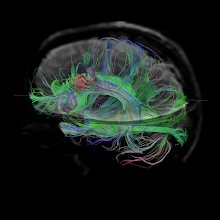Everyone enjoys cake - although some prefer pie - but I don't know anyone who particularly likes the expression, "to have one's cake and eat it too." This is probably because it is so darned confusing (and also because it seems to insinuate that we aren't allowed to eat cake). I shall try to clarify.
Firstly, what does it mean, precisely? It's almost always used in the negative, or if it isn't, the feeling is that someone is getting away with something they shouldn't have. There's a vague idea, generally, that having one's cake and eating it is tantamount to "having it both ways"...which, as everyone knows, you can't. More specifically, having one's cake and eating it too means that a person has benefitted from two scenarios, one of which should naturally preclude the other; a person has both preserved and eaten a cake. An entire cake. The pig!
We were actually talking about this idiom at the dinner table the other night, and someone suggested that taking cake out of the picture would make it more palatable (go figure)...although the offered alternative - have your tree and chop it down and burn it as firewood too - doesn't exactly roll off the tongue.
Outside of getting bogged down in confectionary imagery, the uncertainty this phrase promotes seems to come from two areas. Firstly, the word 'have'...an innocuous enough word, but with enough ambiguity to throw a monkey wrench (and that's another idiom I'll have to address) into the semantics of the sentence. 'Have,' in this case, simply means 'keep,' but even though we are aware of this, there's probably been enough exposure to "Will you have some of the Triple Chocolate Torte or the Red Velvet?" "Oh I think I'll have the Angelfood with Strawberry Preserves" to send me, at least, into a state of confusion. Keep the cake and eat it too or Eat the cake and eat it too?
The second area of uncertainty probably results from a question of sequence. The earliest recorded usage of the idiom was in 1546, and is, "wolde you bothe eate your cake, and have your cake?" The reversal of order found in the original phase seems to make more sense, chronologically. I'm not sure why it was corrupted...the phrase appears flipped around 1812. I feel that expressing it as "eat one's cake and have it too" even reduces the ambiguity of the word 'have'...maybe because, in the confusing (non-keep) sense of the word, it doesn't exactly mean 'eat', but more 'acquire to eat later'.
Anyway, there you have it. Hope I've cleared things up, or at least made it so that you aren't sick of the sight of this less-than-delicious phrase.
Subscribe to:
Post Comments (Atom)




No comments:
Post a Comment